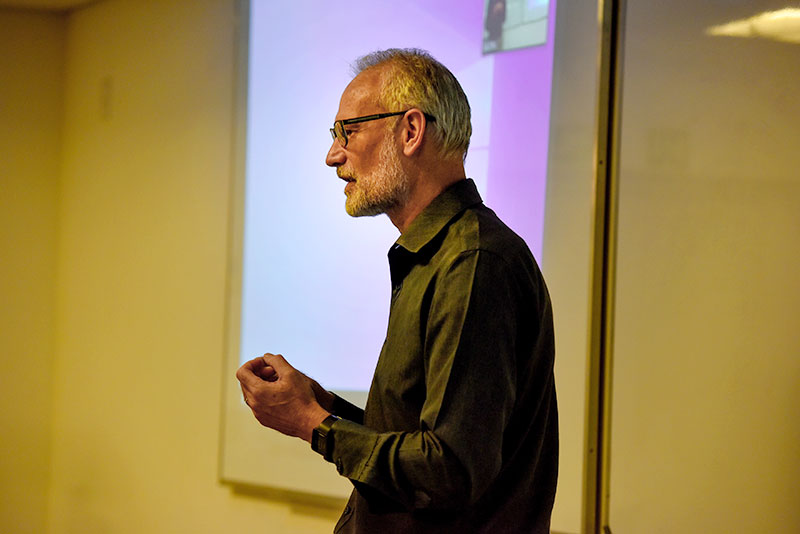SALDRU concludes large-scale research project on the state of SA
07 February 2023 | Compiled by Niémah Davids. Read time 9 min.
The conclusion of the Research Project on Employment, Income Distribution and Inclusive Growth (REDI3X3) – a large-scale, multi-year research undertaking led by the University of Cape Town’s (UCT) Southern Africa Labour and Development Research Unit (SALDRU) – provides an in-depth analysis of some of South Africa’s most pressing challenges; and how to fix them.
The project got under way in 2012, and the results have now been published in hard copy in a book titled: A Measurement of Our Ills – and How We Might Fix Them. Authored by SALDRU’s Pippa Green, the book was officially launched on Friday, 27 January, at UCT’s School of Economics.
REDI3x3 is an independent national research programme, led by SALDRU, in partnership with the National Treasury. The brainchild of former Minister of Finance Pravin Gordhan, the project enabled researchers to drill down into the key economic and social challenges that obstruct and limit inclusive economic growth.
REDI3x3 aimed to better understand the dynamics of employment, incomes and economic trends in South Africa. It focused on the interconnections between these areas, and in doing so, aimed to contribute to shaping policy reforms and development strategies that will address the myriad challenges the country faces. A Measurement of Our Ills – and How We Might Fix Them serves as a blueprint for government, policymakers and civil society on what’s needed to achieve inclusive growth.
“The project was very carefully designed, and it’s been a huge privilege to [have been] pulled into a process like this formally. It has laid the groundwork for what’s to come. [Through this work] we have seeded something,” said the project director, SALDRU’s Professor Murray Leibbrandt.
UCT News summarised themes from the book, and the researchers’ recommendations on how best to move South Africa forward.
An integrated response to unemployment
At the dawn of democracy, 4–6 million South Africans were unable to find work, and half of the population lived in households with at least one unemployed adult. The spatial geography of the country – in particular, the legacy of segregation – has also made it expensive for the poor to search for jobs. Those who live in rural areas are forced to migrate to the city to find work, and the poor who live in urban areas are disadvantaged by high transport costs.
“Whereas unemployment causes much poverty, poverty in turn contributes to high and sustained unemployment.”
As a result of labour market segmentation and severe job constraints, improving employment levels will be tough. Therefore, the researchers argue, poverty is not only the result of unemployment but partly its cause.
“The condition of poverty, as such, debilitates and discourages job search and access to labour markets. This means that whereas unemployment causes much poverty, poverty in turn contributes to high and sustained unemployment. Such vicious circles must at least be part of the explanation of why high unemployment is so persistent [in South Africa],” the book indicates.
Unemployment has been described as a complex and multi-dimensional phenomenon that affects different groups of people differently. It is necessary to implement sustainable and consistent policies to address the scourge. This, the researchers explain, requires an integrated and collective response from all sectors of society.
A reform with considerable potential
Government’s move to introduce the national minimum wage was a “reform with considerable potential”. It protects vulnerable workers and reduces contestation around basic conditions of employment. However, it could also lead to higher unemployment in some sectors, and reinforce a dual labour market where informal, non-compliant enterprises become increasingly common.
“Much depends on whether the minimum wage is accompanied by suitable complementary measures to strengthen social protection and assist low productivity enterprises and activities,” the researchers say.
“Progress in housing investment requires a joint initiative between government and banks and other potential funders.”
In the interim, they recommend that government-led employment-relief programmes should not be exempted from implementing the minimum wage. South Africa should also consider adopting positive support measures that encourage or subsidise social security participation of low-wage employees, which researchers describe as a well-targeted and redistributive measure and an effective way of countering non-compliance.
A “massive expansion” of youth employment opportunities is also necessary. The researchers argue that the current employment incentive, operating through the tax system, is not nearly enough. In addition, complementary measures aimed at the youth are needed to create internships and short-term public service opportunities, together with employment opportunities in the private sector.
Fast-track investment in housing
A sizable increase in housing investment is also essential. After all, investment in housing meets the growing need for shelter and living space, and helps to generate employment and business opportunities. It also yields secondary benefits, which include improved education and health outcomes, and informal and small-scale enterprise opportunities. House ownership is said to be the largest vehicle for the accumulation of family wealth.

To date, much work has already been done to accelerate private housing investment, including tax incentives for home building, financial guarantees, and extended co-financing through development finance institutions. However, public resources have been channelled into direct government housing schemes – and these schemes have faced many implementation challenges; they have been considerably more expensive, and they have made little contribution to restructuring the dispersed urban landscape.
“Progress in housing investment requires a joint initiative between government and banks and other potential funders – to set targets, agree on an appropriate architecture of support for housing investment, and establish partnerships with cities and provincial governments,” the book instructs.
Education, training, skills development
When it comes to education, the researchers emphasise that there is still evidence – and it is mounting – that education and skills development are critical for long-term economic growth and prosperity. But educational outcomes are also largely dependent on family, household and community characteristics, which in turn reflect income and wealth variables.
“Parents’ education, employment and earnings are strong predictors of children’s education outcomes and future work prospects. Education is a vehicle for social progress. But it is also a channel through which inequality of opportunities is reproduced,” the book states.
“These sites of struggle have the potential to become engines of inclusive growth.”
Further education and training institutions assist with bridging the gap between school and the workplace and contribute to occupationally specific skills development. But even though South Africa’s National Development Plan predicted rapid growth numbers in higher education enrolment, artisan training and adult basic education programmes, progress has been slow, with poor success rates over the years.
“Improving the quality of schooling and the effectiveness of further education and training programmes is a long-term project. Public institutions, governance and resource allocation need to be improved. But there also needs to be stronger participation of the business sector and employers in financing occupationally relevant education and ensuring that its quality and content are optimised.”
It takes a village
The researchers conclude that achieving social consensus on economic strategy in South Africa and implementing it effectively will be very difficult. The lack of trust and engagement between government and various stakeholders is widespread and hampers the process.
But the imperatives are clear: economic growth and investment is essential; housing and urban development should be a priority; and job creation and improving basic services are equally important. But the responsibility doesn’t rest squarely on government’s shoulders. Researchers argue that many sectors of society (municipal officials, civil society, business leaders and financial institutions) have a role to play in the process.
“These sites of struggle have the potential to become engines of inclusive growth.”
 This work is licensed under a Creative Commons Attribution-NoDerivatives 4.0 International License.
This work is licensed under a Creative Commons Attribution-NoDerivatives 4.0 International License.
Please view the republishing articles page for more information.










